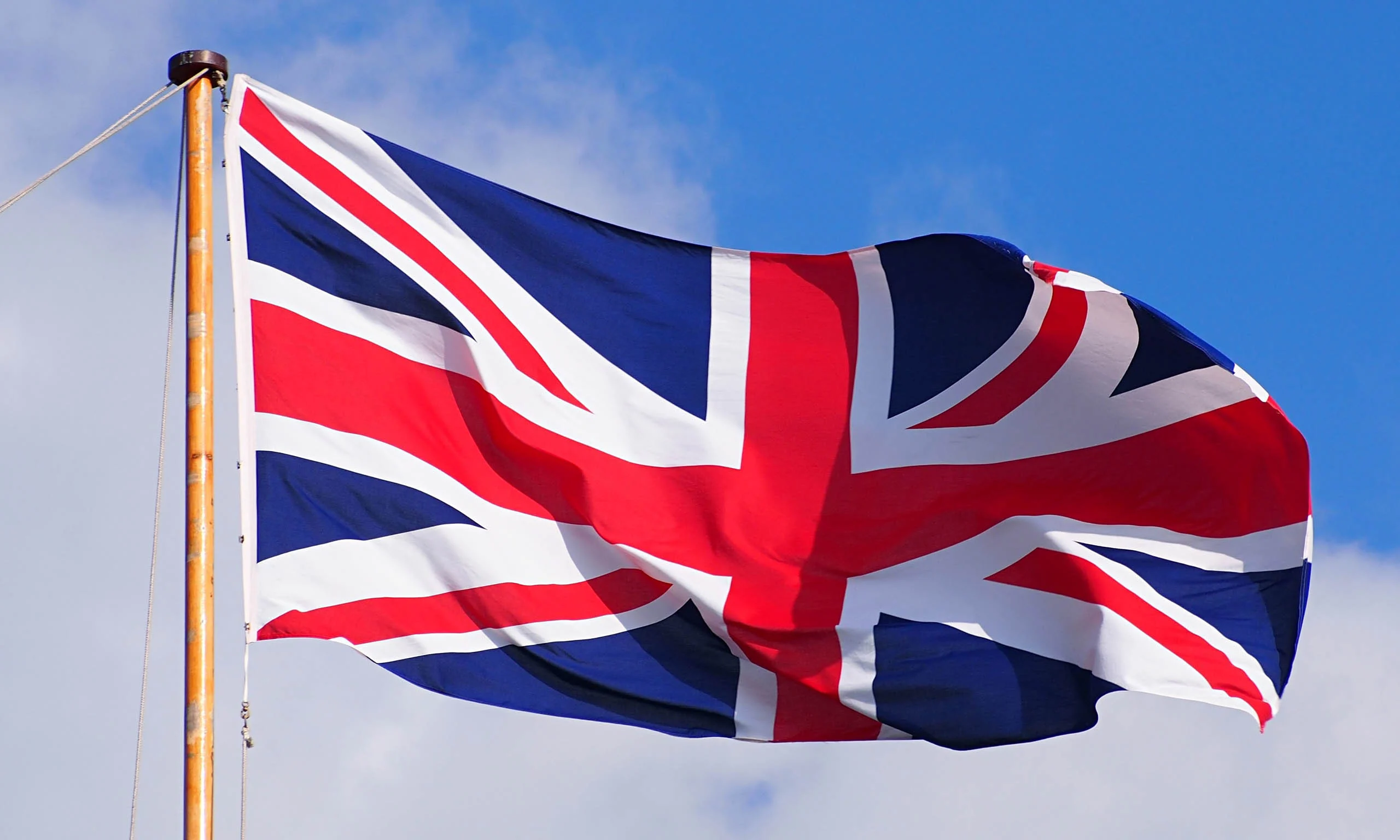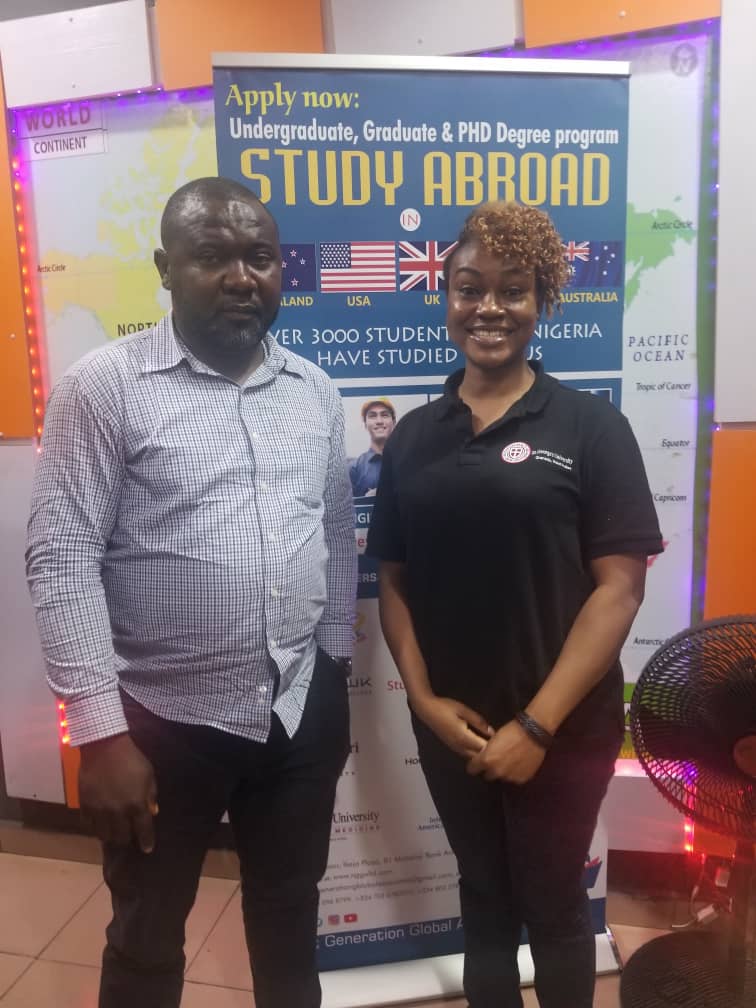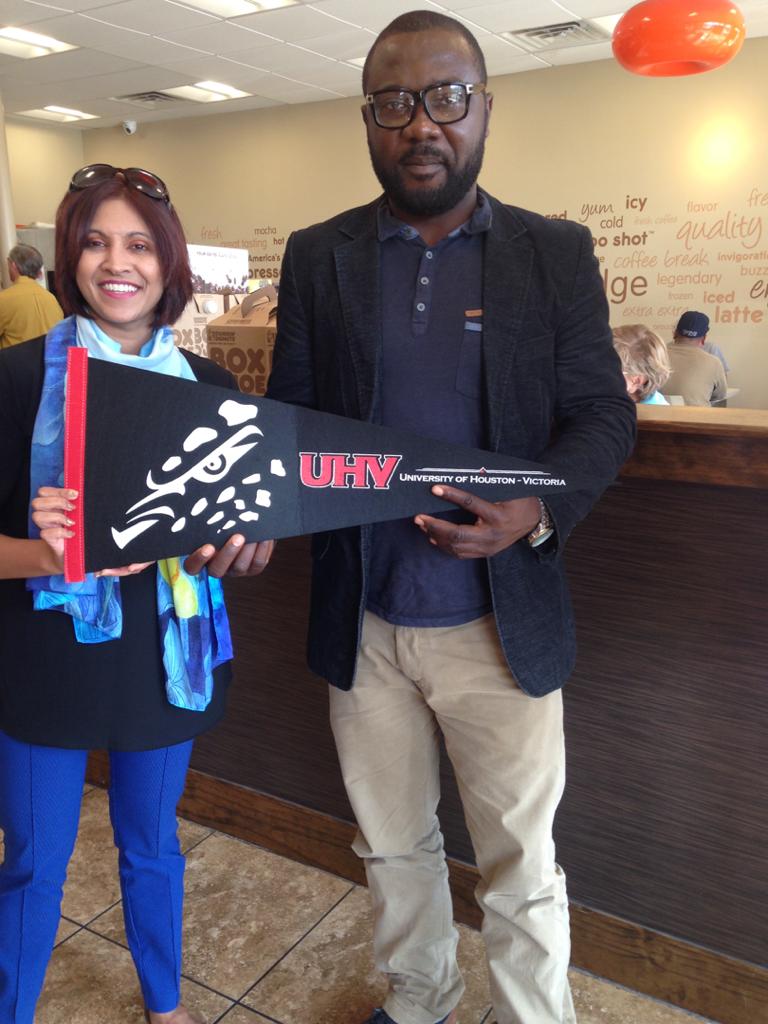Introduction to UK student Visa
UK Student Visa
- Next Generation Global Associates Limited
- UK Student Visa

UK Study Visa
Contents
-
-
Eligibility Criteria
-
Proof of funds for tuition and living expenses
-
Proof of English Language Proficiency
-
Acceptance Letter from a UK University
-
Tuberculosis (TB) Test requirement
-
Biometric resident permit (BRP) Application
-
Proof of parental consent for minors
-
Maintenance requirement for living expenses
-
Police Clearance Certificate
-
Health surcharge payment
-
Submission of Visa Application
-
Supporting document checklist
-
Visa Application processing time
Introduction to UK Student Visa Requirements
Studying in the United Kingdom is a dream for many students around the world. However, before you can embark on your educational journey, you must navigate the complex process of obtaining a student visa. This section will provide a comprehensive overview of the key requirements you need to fulfill in order to successfully apply for a UK student visa.
Eligibility Criteria for Student Visa
To be eligible for a UK student visa, applicants must meet several key requirements. First and foremost, they must have been accepted into a recognized educational institution in the UK, such as a university, college, or school, and have received an official acceptance letter. This letter serves as proof of enrollment and is a crucial document in the application process.
Additionally, applicants must demonstrate that they have sufficient funds to cover their tuition fees and living expenses for the duration of their studies. This typically involves providing bank statements, scholarship or loan documents, or other financial evidence that shows they can support themselves financially during their time in the UK.
Another important requirement is proof of English language proficiency. Depending on the level of study, applicants may need to provide a valid English language test score, such as IELTS or TOEFL, to demonstrate their ability to comprehend and communicate effectively in English within an academic setting.
Furthermore, applicants may need to undergo a tuberculosis (TB) test and obtain a certificate of clearance, as this is a mandatory requirement for certain nationalities seeking to enter the UK. This step helps ensure the overall health and well-being of the applicant and the public.
Finally, applicants who are minors (under the age of 18) will need to provide proof of parental consent and guardianship arrangements, ensuring that their legal guardians are aware of and supportive of their decision to study in the UK.
Proof of Funds for Tuition and Living Expenses
Applicants for a UK student visa must demonstrate that they have sufficient funds to cover the cost of their tuition fees and living expenses for the duration of their studies. This is a crucial requirement to ensure that international students can afford to live and study in the UK without undue financial hardship.
Tuition Fees: Applicants must provide evidence of available funds to cover the total tuition fees for their chosen course of study. This can be demonstrated through bank statements, scholarship award letters, or other official financial documents.
Living Expenses: In addition to tuition fees, applicants must also show that they have enough money to cover their living expenses, such as accommodation, food, transportation, and other necessary costs. The required amount varies depending on the location and length of the study program, but it is typically around £1,023 per month for study outside of London.
Financial Documentation: Acceptable forms of financial evidence include recent bank statements, fixed deposit receipts, or letters from a financial sponsor (such as a parent or guardian) confirming their willingness to financially support the applicant. All documents must be in English or accompanied by a certified translation.
It's important to note that the required funds must be available for at least 28 consecutive days prior to the visa application. Additionally, the funds must be in the applicant's or their sponsor's personal bank account, and cannot be borrowed or loaned specifically for the visa application.
Proof of English Language Proficiency
Demonstrating proficiency in the English language is a crucial requirement for obtaining a student visa to the UK. Applicants must provide proof that they have the necessary language skills to successfully study at a UK university or college. This can be achieved through various accepted English language tests, such as the IELTS, TOEFL, or Pearson PTE Academic exam.
The minimum English language requirements will depend on the specific program and institution you are applying to, but generally, you will need to achieve a certain overall band score, as well as meet minimum scores in the individual skills of reading, writing, speaking, and listening. For undergraduate programs, the typical minimum requirement is an IELTS score of 6.0 or above, with no individual component score below 5.5.
In addition to standardized tests, some universities may also accept alternative proof of English proficiency, such as prior education in an English-speaking country, or a statement from your current school or university confirming your level of English. It is important to carefully review the specific requirements of your chosen institution and ensure that you meet or exceed the necessary language proficiency levels before submitting your student visa application.
Acceptance Letter from a UK University or College
To apply for a student visa to the UK, you must provide an official acceptance letter from a recognized university or college in the United Kingdom. This letter serves as proof that you have been admitted and accepted into a full-time course of study at a licensed UK educational institution. The acceptance letter should include details such as the name of the university or college, the program of study you have been accepted into, the duration of the course, and the start and end dates.
The acceptance letter is a critical component of the student visa application, as it demonstrates that you have a legitimate reason to travel to the UK and that you meet the academic requirements for enrollment. Without this letter, your visa application is unlikely to be approved. It's important to carefully review the letter to ensure all the information is accurate before submitting it as part of your visa application package.
Tuberculosis (TB) Test Requirement
Applicants for a UK student visa are required to undergo a tuberculosis (TB) test if they are from a country that has been identified as having a high incidence of TB. This is a crucial step in the visa application process, as the UK government takes the health and well-being of its citizens and residents very seriously.
The TB test typically involves a chest X-ray, which is used to detect the presence of active TB infection. Applicants will need to provide the results of a TB test conducted at an approved clinic or medical facility, and these results must be submitted as part of the visa application. The test results must be valid for a period of up to six months prior to the visa application date.
It's important to note that the list of countries with a high incidence of TB is regularly updated by the UK government, so applicants should check the latest guidance to ensure they are aware of the current requirements. Failure to provide the necessary TB test results can result in the visa application being delayed or even denied, so it's crucial that applicants plan ahead and schedule the test well in advance of the visa application deadline.
Biometric residence permit (BRP) application
When applying for a UK student visa, you will also need to apply for a Biometric Residence Permit (BRP). The BRP is a physical card that contains your biometric information, such as your fingerprints and a digital photograph, as well as your visa details. This card serves as proof of your right to study, work, and reside in the UK for the duration of your visa.
After submitting your visa application, you will receive instructions on how to enroll your biometrics at a designated UK Visa and Citizenship Application Services (UKVCAS) service point. This typically involves providing your fingerprints and having your photograph taken.
You will need to make an appointment to attend the UKVCAS service point and complete the biometric enrollment process. It's important to arrive on time and with the required documents, as this will help ensure a smooth and efficient process.
Once your biometrics have been enrolled, your BRP card will be produced and sent to the address you provided in your visa application. The BRP card will be delivered within 7-10 working days, and you will need to collect it from the specified location.
It's crucial to ensure that the information on your BRP card is accurate and matches your visa details. If you notice any discrepancies, you should contact the Home Office immediately to have them corrected.
Remember to always carry your BRP card with you while in the UK, as it serves as proof of your immigration status and may be required for various purposes, such as opening a bank account or applying for a National Insurance number.
Proof of Parental Consent for Minors
If you are a minor applying for a UK student visa, you will need to provide proof of parental consent. This is to ensure that your parents or legal guardians are aware of and support your plans to study in the UK. The required documentation may vary depending on your home country, but typically includes a signed consent letter from your parent(s) or guardian(s) authorizing your travels and studies in the UK.
The consent letter should clearly state your name, the name(s) of your parent(s) or guardian(s), and their agreement for you to pursue your studies in the United Kingdom. It should also include their contact information in case the visa officials need to verify the authenticity of the document. In some cases, you may also need to provide a copy of your parent(s)' or guardian(s)' passport or national ID card as additional proof of their identity.
If you are applying for a visa as an unaccompanied minor, you may need to provide even more documentation, such as evidence of your living arrangements in the UK and a letter from your school or university confirming their awareness of your status as a minor and the measures they have in place to support you. The specific requirements can vary, so it's important to check the latest guidance from the UK government and your school or university before submitting your visa application.
Maintenance Requirement for Living Expenses
When applying for a UK student visa, you must demonstrate that you have sufficient funds to cover your living expenses for the duration of your studies. This is known as the maintenance requirement, and it is an essential part of the visa application process.
The maintenance requirement is calculated based on the number of months of your intended stay in the UK. For example, if you are planning to study for a 9-month program, you must show that you have at least £9,207 (£1,023 per month) available to cover your living expenses. This amount is set by the UK Home Office and is subject to change, so it's important to double-check the current requirements before applying.
To meet the maintenance requirement, you can use a combination of sources, such as personal savings, a scholarship, or financial support from family members. If you are relying on a scholarship or family support, you will need to provide official documentation proving the availability and amount of these funds.
It's crucial to carefully plan and budget for your living expenses, as the maintenance requirement is strictly enforced. Failing to meet this requirement can result in your visa application being denied, so it's essential to ensure that you have the necessary funds available before applying.
Police Clearance Certificate
When applying for a UK student visa, you will need to provide a police clearance certificate (also known as a criminal record check or police certificate) as part of your supporting documents. This certificate is required to demonstrate that you have no criminal record in your home country or any country you have previously resided in for more than 12 months. The police clearance certificate must be obtained from the relevant law enforcement authority in your home country. The process for obtaining this document can vary depending on the country, so it's important to research the specific requirements early in the visa application process. In some cases, you may need to apply in person or provide fingerprints, while in others you can submit the request online or by mail.
Identify the appropriate authority in your home country to request a police clearance certificate. This is typically the national police or criminal records office.
Submit the necessary application form, which may require personal information, passport details, and payment of a processing fee.
Provide any additional required documents, such as a copy of your passport, and wait for the certificate to be processed. Depending on the country, this process can take several weeks or even months.
Once you receive the police clearance certificate, ensure that it is valid for the duration of your planned stay in the UK. Some countries may only issue certificates valid for a certain period of time.
Include the original police clearance certificate in your UK student visa application package, along with any required translations or notarizations.
Obtaining a police clearance certificate can be a time-consuming and administrative process, so it's crucial to start this step early in your visa application journey. Failure to provide a valid police clearance certificate may result in your UK student visa being delayed or denied.
Health surcharge payment
When applying for a student visa to the UK, international students are required to pay the National Health Service (NHS) health surcharge. This is a mandatory fee that provides access to the UK's public healthcare system during the duration of the visa. The surcharge amount is currently set at £470 per year for students, and it must be paid upfront as part of the visa application process.
The purpose of the health surcharge is to ensure that international students are able to access NHS services, such as visiting a general practitioner (GP), receiving emergency care, or utilizing other medical facilities, without the need to pay additional fees. By paying the surcharge, students can receive the same level of healthcare coverage as UK residents, which can provide peace of mind and financial protection during their studies.
To pay the health surcharge, applicants will need to provide their personal details, including their name, date of birth, and visa application reference number. The payment can be made online through a secure portal, and proof of payment must be submitted alongside the other required documents for the student visa application. It's important to note that failure to pay the health surcharge may result in the visa application being refused or delayed.
Submission of visa application
Once you have gathered all the necessary documents and met the various requirements for a UK student visa, the next step is to submit your visa application. This process typically involves completing an online application form, paying the required fees, and providing biometric information such as fingerprints and a digital photograph.
The online application form will require you to input personal details, educational background, details of your intended course of study, and information about your financial resources. You will also need to upload scanned copies of your supporting documents, such as your acceptance letter from a UK university or college, proof of funds, and evidence of English language proficiency.
Complete the online visa application form carefully and accurately, ensuring that all the information provided is correct and up-to-date.
Pay the required visa application fee, which can be done online or through a designated payment method.
Attend a biometric appointment at a visa application center to provide your fingerprints and a digital photograph, which will be used to create your biometric residence permit (BRP).
Submit your passport and any other required documents to the visa application center for processing.
It is important to note that the visa application process can take several weeks, so it is recommended to apply for your visa well in advance of your intended travel date. The exact processing time will depend on various factors, such as the location of the visa application center and the volume of applications being processed.
Supporting Documents Checklist
Proof of Acceptance: Provide a copy of your acceptance letter or enrollment confirmation from a recognized UK university, college, or other educational institution. This document should clearly state the course details, duration, and tuition fees, demonstrating that you have been accepted into a legitimate academic program in the UK.
Proof of Funds: You will need to provide evidence that you have sufficient funds to cover your tuition fees and living expenses for the duration of your studies. This could include bank statements, scholarship/loan award letters, or official documentation from your financial sponsor, such as a parent or guardian.
English Proficiency: Demonstrate your English language proficiency by submitting test scores from an approved English language test, such as IELTS, TOEFL, or PTE. The required score will depend on the level of your program, so be sure to check the specific requirements for your chosen institution.
Tuberculosis (TB) Test: If you are applying for a visa to study in the UK for more than 6 months, you will need to provide a valid tuberculosis (TB) test certificate. This is a requirement for certain nationalities and helps ensure the health and safety of the UK community.
Visa Application Processing Time
Submission: Once you have compiled all the required documents and made the necessary payments, you can submit your visa application. This can be done either online or through a visa application center, depending on your location. Submitting your application accurately and completely is crucial, as any missing information or errors can lead to delays in processing.
Processing Timeline: The processing time for UK student visas can vary depending on several factors, such as the time of year, the volume of applications, and the complexity of your case. Generally, the processing time for a standard student visa application can take up to 3 weeks, but it's important to check the current processing times on the UK government's website, as they can change periodically.
Expedited Options: If you need your visa application processed more quickly, there are expedited options available for an additional fee. These include the Priority Service, which can reduce the processing time to 5 working days, and the Super Priority Service, which can process your application within 1 working day. However, it's important to note that these expedited services are subject to availability and may not be offered at all times.
Conclusion and next steps
As you've seen, applying for a student visa to study in the UK involves a comprehensive process with several key requirements. From proving your eligibility and financial capability to meeting English proficiency and health standards, navigating the student visa application can be complex but ultimately worthwhile for those seeking a world-class education. With the information provided in this guide, you now have a clear roadmap for the steps ahead.
The final step is to begin your visa application as soon as possible, ensuring you have all the necessary documentation and are prepared to meet any deadlines. Consult the checklist of supporting documents and start gathering the required materials. Once you have everything in order, you can submit your application and eagerly await the decision. Remember that the visa processing time can take several weeks, so plan accordingly and keep track of any updates.
-
Select
Visa Type -
Fill
Online Form -
Submit
Application -
Visa
Processing -
Visa
Approved







